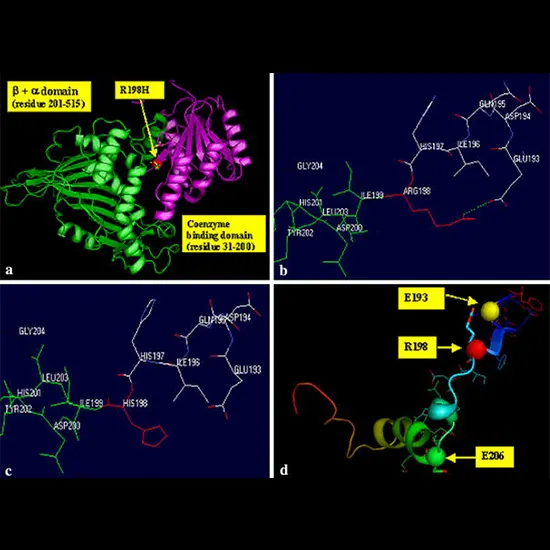
Book G6PD - Mediterranean & Orissa Types Appointment Online Near me at the best price in Delhi/NCR from Ganesh Diagnostic. NABL & NABH Accredited Diagnostic centre and Pathology lab in Delhi offering a wide range of Radiology & Pathology tests. Get Free Ambulance & Free Home Sample collection. 24X7 Hour Open. Call Now at 011-47-444-444 to Book your G6PD - Mediterranean & Orissa Types at 50% Discount.
The most prevalent enzyme deficiency in the world, glucose-6-phosphate dehydrogenase deficiency (G6PDD), is an inherited metabolic mistake that increases the risk of red blood cell destruction. [1] Most often, persons who are impacted don't exhibit any symptoms. [3] Symptoms like pale skin, black urine, fatigue, and shortness of breath may appear after a particular trigger. [1] [2] Complications may include neonatal jaundice and anaemia. [2] Others never experience symptoms.
An enzyme called glucose-6-phosphate dehydrogenase guards the red blood cells that transfer oxygen from the lungs to the body's tissues. Red blood cells break down too soon as a result of an enzyme flaw. Hemolysis is the term used to describe this red blood cell lysis. [6] Stress, certain medications, illnesses, and certain foods, such as fava beans, can all cause red blood cell disintegration. [1] [3] The stringency of the ailment may vary pivoting on the special modification. [2] Blood tests and genetic testing are used to confirm the diagnosis, which is based on symptoms
Affected people must stay away from food triggers, particularly fava beans[3]. Given that fava beans, also known as "wide beans," are frequently utilised in dishes as flour or whole, this can be challenging. Though fava beans are arguably best known for falafel, they are also used as a filler in meatballs and other dishes.
Due to the X-linked convention of inheritance, the preponderance of those who occasion manisfestation are male. However, female carriers may also experience symptoms due to unfavourable lyonization or skewed X-inactivation, in which a population of G6PD-deficient red blood cells coexists with unaffected red blood cells in some cells. About half of a female's red blood cells will have the deficit if she has one X chromosome that is defective. The ratio can be significantly higher than 50% in some circumstances, such as double X-deficiency, making the person almost as sensitive as men
Hemolysis, or the destruction of red blood cells, can take many different forms in G6PD deficiency, including the following: [Reference needed]
extended neonatal jaundice that could result in kernicterus (arguably the most serious complication of G6PD deficiency)
The G6PD gene can get mutated to cause G6PD deficiency. The G6PD gene helps to make glucose-6-phosphate dehydrogenase. Compounds that are created during chemical processes involving glucose-6-phosphate dehydrogenase stop reactive oxygen species from amassing to dangerous quantities within red blood cells. When the G6PD gene is mutated, glucose-6-phosphate dehydrogenase is reduced in quantity or changes structurally, losing its protective function and causing an accumulation of reactive oxygen species and red blood cell destruction.
| Test Type | G6PD - Mediterranean & Orissa Types |
| Includes | G6PD - Mediterranean & Orissa Types (Pathology Test) |
| Preparation | |
| Reporting | Within 24 hours* |
| Test Price |
₹ 425
|

Early check ups are always better than delayed ones. Safety, precaution & care is depicted from the several health checkups. Here, we present simple & comprehensive health packages for any kind of testing to ensure the early prescribed treatment to safeguard your health.